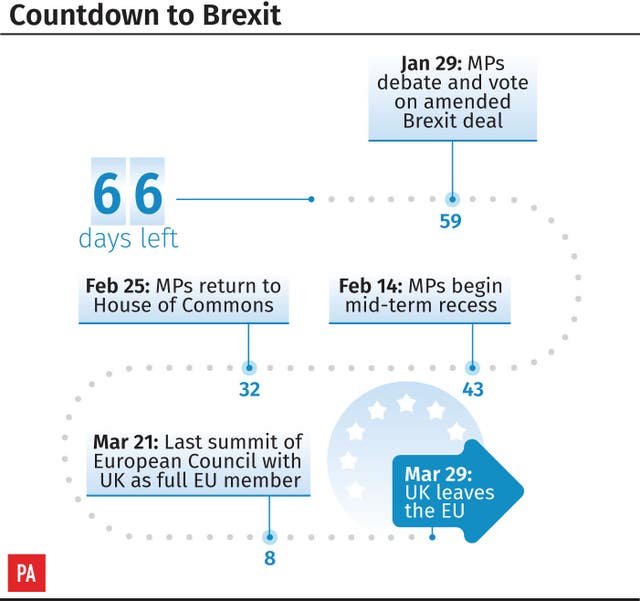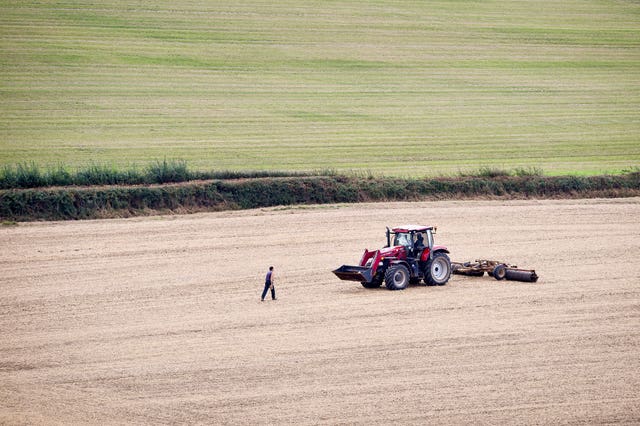Animal waste export ‘could be threatened’ under no-deal Brexit
Up to 75,000 tonnes of chicken and pig manure are sent from Northern Ireland to the Republic each year, Assembly member John Dallat said.

The export of thousands of tonnes of Northern Irish animal waste destined for the Republic could be threatened by a no-deal Brexit, farming and political representatives have said.
Massive amounts of chicken and pig manure are sent to anaerobic digestion plants in Ireland each year to create energy.
If the frontier becomes a border with the EU in less than 10 weeks, no one knows that will happen to it, SDLP Assembly member John Dallat said.

The Ulster Farmers’ Union (UFU) said solutions could involve spreading more on the land, incineration and the use of other waste at energy facilities. Historically it would have been burned in a Scottish incinerator.
Mr Dallat said: “I believe there is now a real risk to our rivers, watercourses, lakes and indeed the sea as ammonia and other nitrates build up to levels that are well above what is considered safe, and we have no Assembly to address this issue.”
He said ammonia levels are higher in Northern Ireland than elsewhere in the UK or Republic. It is a noxious gas which emanates from animal waste.

The East Londonderry Assembly member estimated that up to 75,000 tonnes of animal waste are sent to the Republic each year for processing into energy.
The UK is due to exit the EU at the end of March but Westminster has rejected the draft Withdrawal Agreement on the table.
It leaves a no-deal exit the default position unless another plan is agreed.
Senior civil servants briefing Stormont Assembly members on delivery plans for their departments in the absence of a functioning legislature disclosed to Mr Dallat details of the potential impact.
Litter from poultry farms and sludge from intensive pig farms may not be exported to anaerobic digestion plants in the Republic following Brexit, the public representative said.
He added: “This brings directly into focus the wisdom of the promotion of intensive farming methods which demand outlets for huge volumes of sludge.”
Digesters use organic material like slurry and silage to make a biogas which is burned to produce electricity.

Victor Chestnutt, deputy president at the UFU, said: “There are going to be potential barriers for litter.
“It usually goes to arable land as fertiliser.
“Under a no deal you would effectively become a third country, moving that to an EU country.
“All the rules of third countries would apply to that and the EU already has its rules for third country waste but it is one of the secondary issues.”

He said the export of animal product was the immediate priority.
“Effectively litter is something which is easier to move, historically it would have been to Scotland to be burned in an incinerator, then it became more attractive to go south to be used as fertiliser.”
He said the Tully Quarry development had taken a substantial amount for biogas, burning for energy.
“There are alternative technical solutions to export, for example local land spreading, incineration and use in AD (anaerobic digestion) plants.
“Equally, it disrupts trade, it is whether there are more efficient ways that we look utilise it.”
An AD project outside Ballybofey in Co Donegal was to be constructed by Co Antrim-based Williams Industrial Services, but the firm has gone into administration.
The project received a £9.3 million loan from Government jobs creation agency Invest NI.





